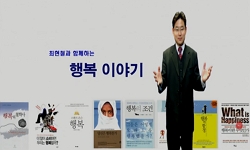This study focused on individuals' lives in terms of happiness and aimed to explore the role of cultural and arts education in enhancing personal happiness. To do so, the study utilized Seligman's theory of PERMA, which suggests five elements necessar...
http://chineseinput.net/에서 pinyin(병음)방식으로 중국어를 변환할 수 있습니다.
변환된 중국어를 복사하여 사용하시면 됩니다.
- 中文 을 입력하시려면 zhongwen을 입력하시고 space를누르시면됩니다.
- 北京 을 입력하시려면 beijing을 입력하시고 space를 누르시면 됩니다.

문화예술교육이 삶의 행복에 미치는 영향에 관한 탐색적 연구 - <경남 문화예술교육 프로그램 사례>를 중심으로 - = An Exploratory Study on the Effects of Culture and Arts Education on Life Happiness - Focusing on the Case of Gyeongnam Culture and Arts Education Program -
한글로보기https://www.riss.kr/link?id=A108637332
- 저자
- 발행기관
- 학술지명
- 권호사항
-
발행연도
2023
-
작성언어
Korean
-
주제어
Culture and Arts Education ; Music Art Education ; Role of Education ; Happiness ; PERMA ; 문화예술교육 ; 음악예술교육 ; 교육의 역할 ; 행복 ; PERMA
-
등재정보
KCI등재
-
자료형태
학술저널
-
수록면
609-623(15쪽)
- 제공처
-
0
상세조회 -
0
다운로드
부가정보
다국어 초록 (Multilingual Abstract)
This study focused on individuals' lives in terms of happiness and aimed to explore the role of cultural and arts education in enhancing personal happiness. To do so, the study utilized Seligman's theory of PERMA, which suggests five elements necessary for sustained happiness enhancement.
The research findings revealed the following: firstly, in terms of "Positive Emotion," arts education was found to foster positive emotions such as joy, excitement, warmth, confidence, trust, optimism, and hope. It was observed that individuals grew through encouragement from peers who learn together with a strong will. Secondly, in terms of "Engagement," arts education was interpreted as creating significant satisfaction or immersion to the extent that individuals lose track of time.
Thirdly, in terms of "Relationships," arts education played a role in increasing trust not only in oneself but also in learning companions through the process of socializing with others. Fourthly, in terms of "Meaning," it was confirmed that music and arts education, rather than providing momentary pleasure, led to emotional responses and a sense of values in life, fostering self-esteem.
Lastly, in terms of "Accomplishment," arts education was found to contribute to actively seeking and achieving personal happiness, acquiring a sense of accomplishment.
동일학술지(권/호) 다른 논문
-
착생과 공생 사이 - 존 케이지의 “4분 33초”의 교육적 함의 -
- 한국문화융합학회
- 김희진
- 2023
- KCI등재
-
- 한국문화융합학회
- 곽지영
- 2023
- KCI등재
-
IT 산업 종사자의 직장 내 갈등지각이 긍정적 심리자본 형성에 미치는 영향 - 심리적 지지유형의 조절효과 -
- 한국문화융합학회
- 양은숙
- 2023
- KCI등재
-
대학생의 내현적자기애가 대인관계에 미치는 영향 - 거부민감성과 무조건적자기수용의 매개효과 -
- 한국문화융합학회
- 오충광
- 2023
- KCI등재




 스콜라
스콜라






